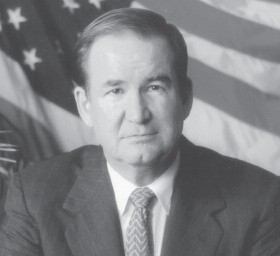Gray Matter: The Stuff That Really Matters
A few years ago, I was participating in a national radio interview when the questioner asked me, “Dr. Carson, I notice that you don’t speak very often about race. Why is that?” I replied, “It’s because I’m a neurosurgeon.”

The puzzled look on her face demanded further clarification.
I proceeded to explain that when I take a patient to the operating room and open the cranium, exposing the brain, I am operating on the actual thing that makes that person who they are. The hair, scalp and skull bones are merely external coverings of the critical entity-the brain-that determines all of the most important things about us as human beings. We have a choice of concentrating on superficial characteristics, which mean little or nothing, or concentrating on the source of our humanity, our intellect, our personality and the content of our character.
A few weeks ago, during her television program on the Fox News Channel, Megyn Kelly made reference to the racial makeup of Jesus Christ and Santa Claus. She indicated that in American culture they are usually portrayed as Caucasian. This ignited a firestorm of protests and disagreement, as do many innocent remarks in today’s hypersensitive culture.
There was little discussion of who Jesus Christ was or his message, nor was there much reference to the symbolism of Santa Claus. Instead, accusations of racist tendencies were leveled.
In the Bible, many characters are described in some detail when it is relevant to the story being told. The fact that there is little or nothing describing the physical appearance of Jesus should serve as an indicator of the irrelevance of racial descriptions for someone with such an important mission.
Why do we in America, almost half a century after the death of Martin Luther King, still continue to make judgments based on the color of one’s skin rather than the content of one’s character? Those who seem most concerned about race are the socalled “progressives,” some of whom claim that if we stop fanning the flames of racial injustice, we will return to the days when racial prejudice was acceptable.
This kind of pessimism is unwarranted, and we need to remember that a great deal of the racism of the past was based on total ignorance, which bred fear and hatred. Those wishing to maintain the unjust status quo were in no hurry to allow the truth to be revealed to whites or blacks about the other side, because such revelations would dispel myths and foster harmony. Thus, segregation and blissful ignorance were maintained at all costs.
The fear and loathing that characterize the political atmosphere in America today are also based on ignorance.
Too many people are willing to listen to the inflammatory rhetoric of the dividers who happily toss out accusations of racism against critics of the president of the United States whenever they disagree with his policies. Rather than acting like thirdgraders and calling each other names, why not actually discuss the policies themselves? Why not have a discussion about the gigantic issues facing our society, such as whether we want the government to control our lives and the lives of everyone around us, as opposed to the original vision for this country of individual independence and selfdetermination?
Many do not want such discussions to take place, because people will be forced to actually think about their true beliefs, rather than being manipulated for the political purposes of others. If we are to thrive, we must be able to see the big-picture issues and not get bogged down with superficial, peripheral problems. The direction of our country is a very big deal, and if we don’t have a serious discussion about it, the nature of our society will change by default.
I am very grateful that God gave us racial variety. Who would want to go to the Smithsonian’s National Zoo if every animal were a Thomson’s gazelle? Who would visit the national aquarium if every fish were a goldfish? Who would want to get up in the morning if everybody looked exactly like them?
In an episode of The Twilight Zone many years ago, a very beautiful and smart young woman was regarded as unsuitable for society. It was revealed at the end of the episode that everyone else was quite ugly, which, for that society, was the norm. They judged the woman harshly because her external appearance was different. Obviously, creator Rod Serling was ahead of his time with his social commentary.
Maybe 2014 will mark a new beginning, a time when we stop judging people based on superficial characteristics.
We will know that America has made substantial social progress when black Americans are not expected to adhere to any particular political philosophy, just as white Americans do not have a prescribed political doctrine to which they must adhere. Fortunately, we get to choose whether we are going to use the magnificent gray matter that sits between our ears-as opposed to our skin color-to determine who we are and our course of action.
Ben S. Carson is professor emeritus of neurosurgery at Johns Hopkins University.


































